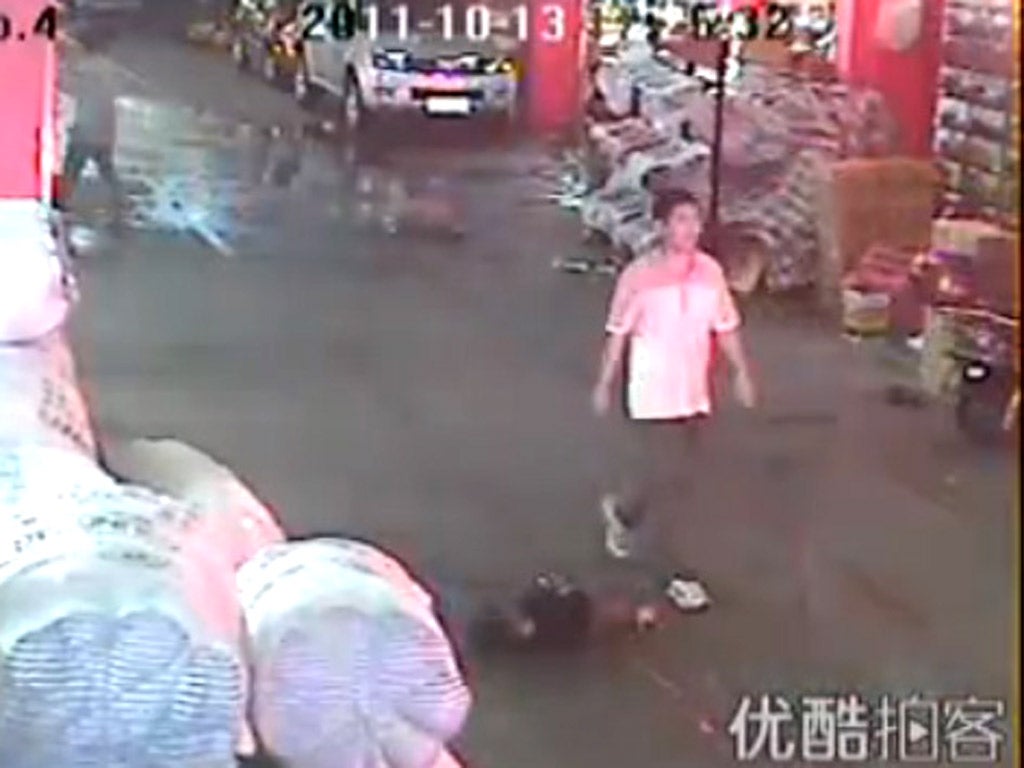Beijing censors tighten restrictions on dissenting bloggers
Online criticism of Yue Yue and train crash outrages prompt move to 'regulate' social media

Your support helps us to tell the story
From reproductive rights to climate change to Big Tech, The Independent is on the ground when the story is developing. Whether it's investigating the financials of Elon Musk's pro-Trump PAC or producing our latest documentary, 'The A Word', which shines a light on the American women fighting for reproductive rights, we know how important it is to parse out the facts from the messaging.
At such a critical moment in US history, we need reporters on the ground. Your donation allows us to keep sending journalists to speak to both sides of the story.
The Independent is trusted by Americans across the entire political spectrum. And unlike many other quality news outlets, we choose not to lock Americans out of our reporting and analysis with paywalls. We believe quality journalism should be available to everyone, paid for by those who can afford it.
Your support makes all the difference.The Chinese government has stepped up its efforts to crush online dissent by bringing in tougher controls of social media and instant messaging tools in the clearest sign yet that services such as Weibo, which are similar to the banned Twitter, are angering authorities.
The crackdown took place amid national soul-searching after the death last week of a toddler, Yue Yue, who was struck by a truck and lay bleeding in the road witnessed by passers-by who failed to go to her assistance. Weibo helped to turn the incident into a national debate, just as a high-speed train crash in July turned into a scandal after microbloggers criticised the government's response. A communiqué issued by the Communist Party leadership was published yesterday in the party's official mouthpiece, the People's Daily. "Strengthen guidance and administration of social internet services and instant communications tools and regulate the orderly dissemination of information," it read.
New measures also rein in freewheeling TV companies and come after a meeting this month of the Communist Party's Central Committee that set the broader agenda for China's ruling elite and focused heavily on culture.
The move is part of what was increasingly being seen as a "new cultural revolution", a broader effort to push Communist Party issues ahead of Western media and Hollywood movies, all of which are seen as playing a role in encouraging dissent. Beijing has been increasingly nervous about the thriving microblogs in Chinese – and the ease with which they sidestep censorship and government controls. Weibo postings allow 140 Chinese characters, which effectively means 140 words, whereas Twitter is restricted to 140 English letters, a much shorter option. While Facebook and Twitter are banned in China, most people find Weibo more than adequate to get their views across, often without revealing their identities. There were 195 million microblog users registered in China at the end of June.
Exactly how China will rein in the sites or try and promote content acceptable to the party was not clear, but the communiqué warned that authorities would "apply the law to sternly punish the dissemination of harmful information." It did not give details of what form firmer regulation may take.
"Putting words like that in a document like that shows that they're taking this issue very seriously," said Li Yonggang, an expert on internet policy at Nanjing University in east China. "This is a political signal, but it will probably be some time before this results in any new measures or regulations emerge."
At the same time, the State Administration of Radio, Film and Television (SARFT) has announced a crackdown on "vulgar" or "overly entertaining" TV. The crackdown reserves particular ire for programs dealing with marital troubles and matchmaking shows. Talent contests, game shows and reality programming were also under fire. Such shows will be banned from the start of next year on China's 34 satellite TV stations and replaced by news and cultural programming.
"Satellite channels are mainly for the broadcast of news propaganda and should expand the proportion of news, economic, cultural, science and education, children's, and documentary programming," SARFT said.
Satellite channels can show no more than nine of the restricted programs each night between the prime time hours of 7.30pm and 10pm, with individual channels limited to two programs each not exceeding 90 minutes in total. They must also show at least two hours of news between 6.00am and 11.30pm. Microblogging sites have already begun to carry comments on the issue. Tianjunshangxiao wrote: "How can a government say it represents you if it wants to control how many times a day you watch entertainment on TV."
Join our commenting forum
Join thought-provoking conversations, follow other Independent readers and see their replies
Comments